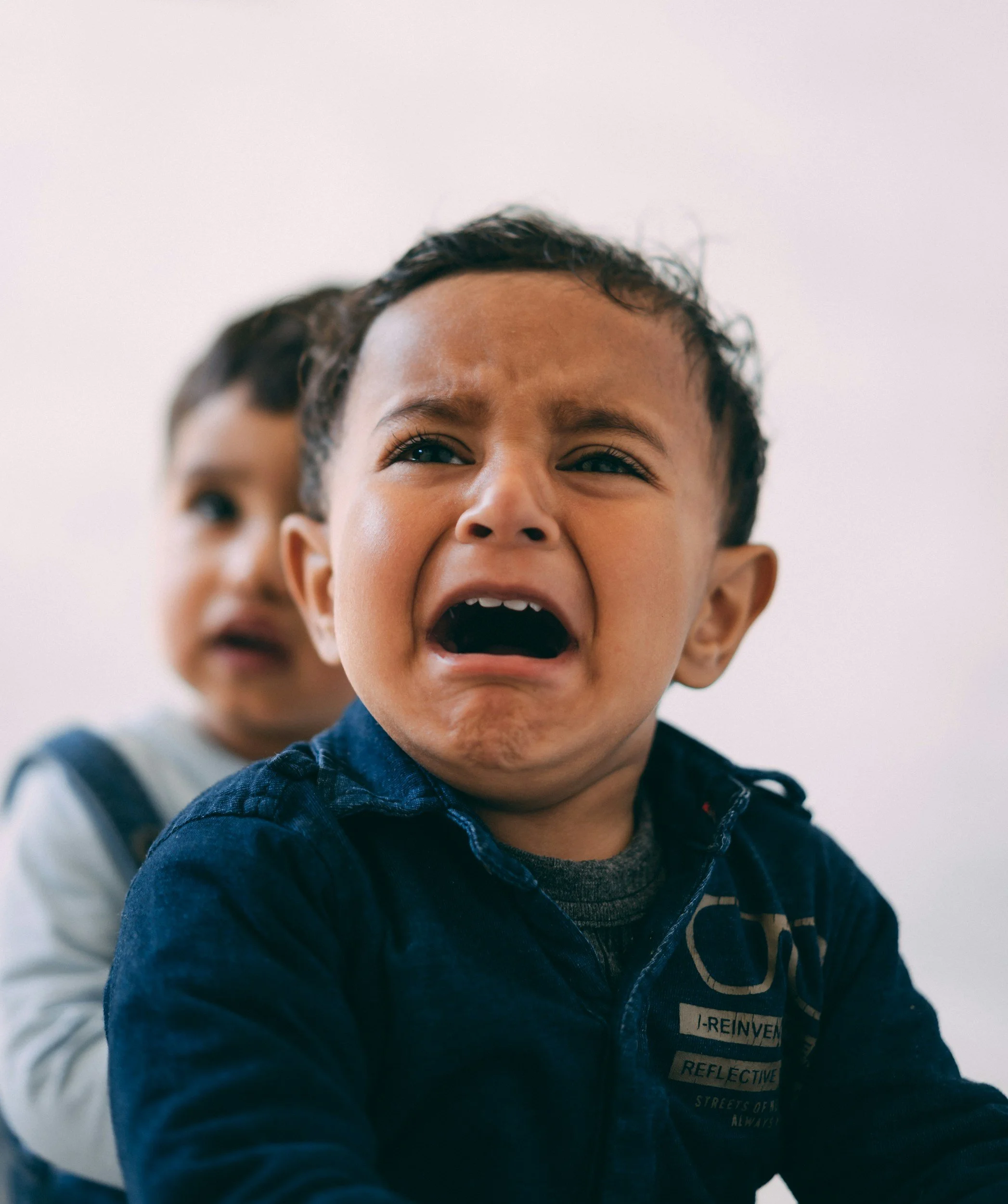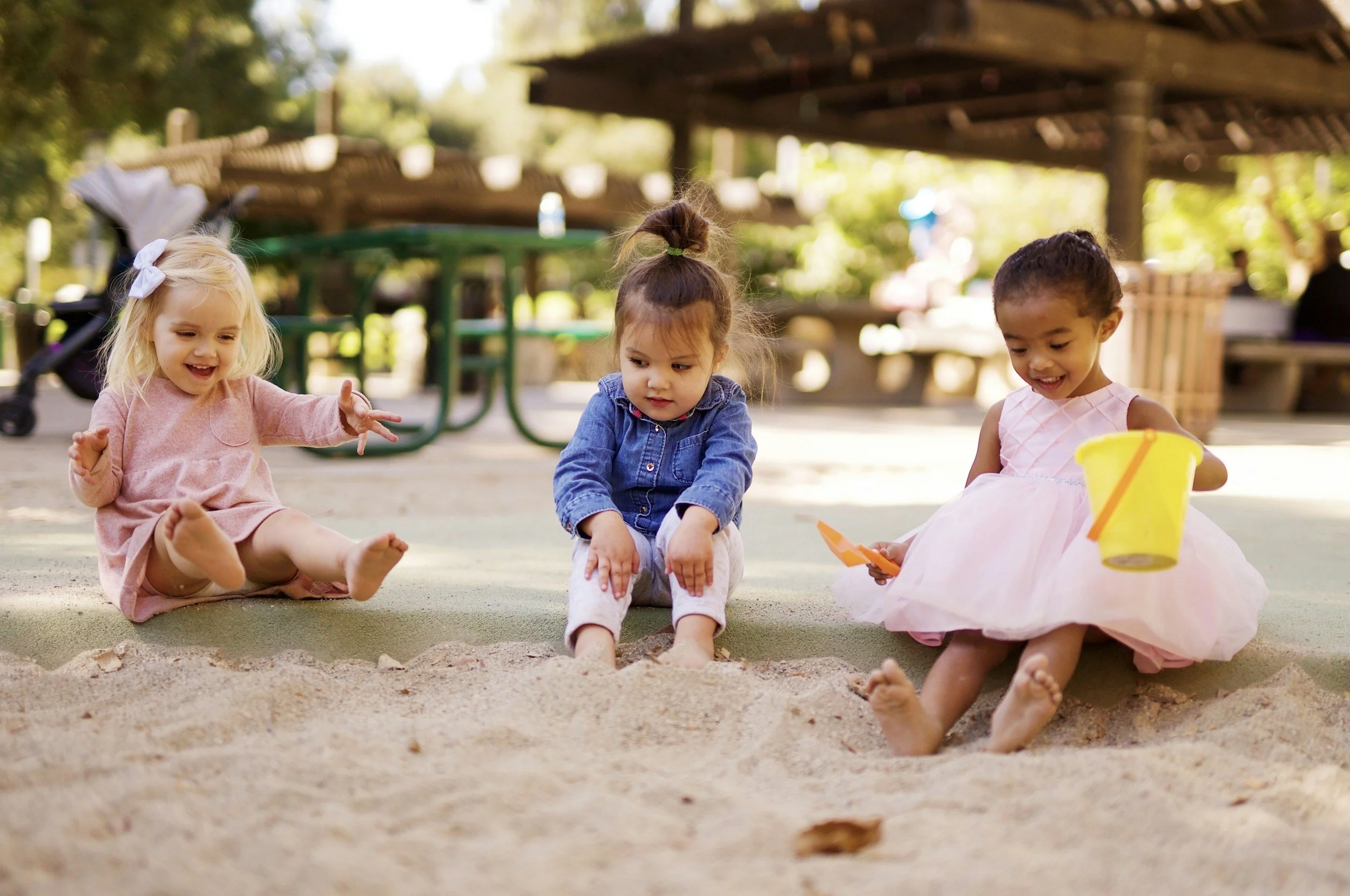
Help for Overstimulation in Parents
You're in the kitchen trying to figure out what’s for dinner while holding your baby, their little hands are swatting at your face. Meanwhile, your toddler has somehow climbed the back of the couch and is using it as a launchpad. Your oldest appears at your side, math worksheet in hand, asking for help with fractions that you can barely remember yourself. And just as you're trying to juggle all of this, your partner walks in, clearly needing to vent about their difficult day at work.
If this feels like a normal day in your home, you are probably feeling overstimulated.
Take a deep breath and let’s work on some practical tips to reset…

Understanding Behavioral Challenges in Daycare/Preschool Settings: A Guide for Parents and Providers
In daycare and preschool settings, children are doing some of the most important developmental work of their lives. They're testing boundaries, learning to express emotions they don't have words for yet, and figuring out how to exist in a world with other people who also have needs and feelings. These behaviors aren't signs that something is wrong with your child or that you're failing as a parent or provider. They're actually signs of a developing brain doing exactly what it's supposed to do—learning, growing, and sometimes struggling along the way. When a child melts down or acts out, they're often telling us something important…
Insight by: Justin Gutterman, MEd, LMSW

Is Your Child's Physical Development on Track?
Pediatric physical therapy is specialized care designed specifically for children from infancy through early elementary years. It focuses on helping kids build the strength, balance, coordination, and movement skills they need to play, learn, and grow alongside their peers.
Think of it as giving your child's body the tools and practice it needs to do all the things childhood should include—running after friends, climbing confidently, participating in activities at school, and moving through their day with ease and independence.

What Is Infant Mental Health? Understanding Your Young Child's Emotional World
Infant mental health isn't about diagnosing or pathologizing. It's about relationships and how they are the foundation for everything else. Every warm interaction, every moment of understanding, and every consistent boundary helps establish lifelong emotional well-being. When caregivers nurture connection, children thrive—emotionally, socially, and developmentally.

Separation Anxiety in Children and School Avoidance: What Parents Need to Know
Many children experience separation anxiety and school avoidance, especially during big transitions like starting school or returning after a break. Morning tears, tummy aches, and a child saying “I don’t want to go to school” can feel stressful for the whole family.
With patience and the right support, children can learn to manage these feelings and feel more comfortable with school routines. Approaches like play therapy, parent support, and gentle coping strategies can make a big difference in helping kids build confidence and independence over time.

Expecting Baby #2? How to Support Yourself and Your Toddler Through the Transition
Welcoming a new baby is a big transition—not just for parents, but for the older sibling, too. From shifting routines to expanding family dynamics, this season brings both excitement and uncertainty. In this post, we explore how families can prepare for the arrival of a new sibling, with tips for supporting both your child and yourself during the transition.
We’ll touch on everything from reading sibling prep books to maintaining sleep routines and caring for your own mental health. With gentle strategies inspired by perinatal experts and family-centered care, this guide is here to help your growing family feel connected, prepared, and supported—every step of the way.

The Benefits of Play in Early Childhood: From Infants to Elementary
The most important time for a child’s brain to grow is from birth to age 5. During these early years, the brain is incredibly flexible and rapidly building new connections. One of the best ways to support this growth? Play.
Play looks different for every child, but all play is valuable. According to Dictionary.com, play is “exercise or activity for fun or recreation” or “fun or joking, as opposed to seriousness.” At ECPP, we completely agree—play doesn’t need a plan to be powerful.

Aquatic Physical Therapy for Children
When your child enters the water, something beautiful happens. Suddenly, their body feels lighter. Movements that seemed impossible on land become achievable. There is a spark of joy when they realize they can move freely without pain or fear.
Water becomes their ally, not their obstacle. The buoyancy supports their body weight, reducing stress on joints and muscles by up to 90%. This means your child can focus on movement patterns and building strength without the overwhelming challenge of fighting gravity every step of the way.

Early Childhood Development and the Benefits of Early Intervention
From birth through age eight, your child's brain is like a sponge—soaking up experiences, forming connections, and building the pathways they'll use for a lifetime. These early years offer a special window of opportunity that won't come again. Your child's early experiences—the loving words you speak, playing with them, the stories you read together—all help shape how their brain develops.
As a parent, you know your child best. You notice their unique personality, celebrate their milestones, and sometimes wonder if certain behaviors are typical. Those questions and observations matter! Understanding what's typical in childhood development helps you recognize when extra support might benefit your little one.

Potty Training: A Therapist’s Guide for Parents
Potty training is a significant developmental milestone that can often feel overwhelming for parents. While the prospect of saying goodbye to diapers is exciting, the journey is rarely straightforward. As child development professionals, we understand the challenges families face during this important transition.
In child development, each milestone has its own challenges and potty training is no different. Please know that you are not alone. Be kind to yourself and patient with your child during this stage of learning. Know that help is available and you do not have to struggle alone.
